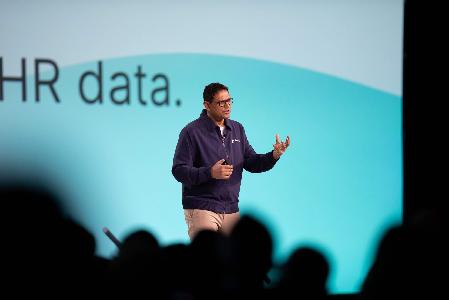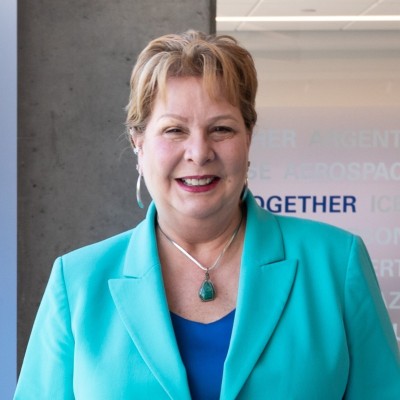
This is How I Got Here, a series where we chart the career journeys of technologists. Want to tell your story? Get in touch.
As it might take time for such curriculums to evolve, as the City of Pittsburgh’s digital inclusion specialist and coordinator of the Rec2Tech STEM education program, the Hill District native takes science, technology, engineering and mathematics courses to the 600 kids frequenting recreation centers around the city so that they can imagine a future for themselves in the tech industry.
“Before I got to the City, our recreation centers were largely used for just lifting weights, playing basketball, kids played video games or something like that,” Dennison told Technical.ly. “But there wasn’t much conversation about, ‘How do we get them into more STEAM and STEM activities?’”
Originally a history teacher for two years in Pittsburgh Public Schools, Dennison observed that plenty of kids possess the skills to become technologists. Yet few students from areas such as Homewood and Wilkinsburg considered it a feasible career path — or, like Dennison himself at one point, they assumed that in order to be successful in tech you need to be a mathematical genius, he said.
It’s an exposure problem: “The average person doesn’t know what it means to code, or what it means to program, or what computer science is or what artificial intelligence is,” he told us last fall. And that’s a problem, given those are some of the driving forces behind Pittsburgh tech. Of course, those industries aren’t the only ones to ensure a strong economic future for those working in them, but they’re a good bet — and in desperate need of more diverse talent to boot.
For Dennison, his perception of the industry changed while he was frequenting professional meetups in the years after attending Point Park University: He asked the people around him where the future was headed, and his new connections pointed him toward the tech industry.
Once his interest was piqued, much of his own tech education came through hackathons, multiple coding bootcamps and the occasional online tutorial. From his perspective, all anyone who wants to work in the industry needs is an internet connection and a lot of curiosity, and he tries to ensure his students understand what could be possible for them. In a similar vein, Dennison also cofounded Beta Builders, a free coding summer camp for Pittsburgh kids ages 10 to 18.
Catch him instructing a Rec2Tech game development class at the 55-second mark:
Now at Rec2Tech, Dennison’s background in education and knowledge of the field has been combined. A kid who walks into a recreation center hosting the program can look forward to coding, robotics and artificial intelligence classes free of charge.
“There is a world full of opportunity in tech, where you can make a good living, where you don’t have to wear down your body,” Dennison said, “and you can just use your mind and be creative and be innovative.”
As of 2018, according to the Pew Research Center, Black students obtained just 7% of STEM degrees, while Latinx students obtained 12%. Dennison hopes to see those numbers change by starting the conversation about what the STEM field has to offer earlier.
In an uncertain world, from this technologist’s perspective, one of the best ways to set up his students for future security is to introduce them to the possibilities of the tech industry. Having had an unconventional journey to the field himself, he encourages his students and anyone interested in the tech industry to remember that what someone lacked in traditional schooling could be made up for with a strong work ethic and curiosity.
“Tech is one of the few spaces you do not need a traditional four-year degree to get involved in,” Dennison said. “All you need is your computer and Wi-Fi and you can get a good taste of what’s happening. You could watch a free YouTube course and then take it further if you think, ‘OK, this is something I can do,’ so I would say take advantage of all those things.”
Atiya Irvin-Mitchell is a 2022-2024 corps member for Report for America, an initiative of The Groundtruth Project that pairs young journalists with local newsrooms. This position is supported by the Heinz Endowments.Join the conversation!
Find news, events, jobs and people who share your interests on Technical.ly's open community Slack

RealLIST Connectors 2024: Meet 20 leaders spreading innovation throughout Pittsburgh

Is AI really something new — or just the next big technology platform?

This Week in Jobs: Get out there with 22 new job opportunities available to you!


